Artist Kiki Smith is known for incisive works that explore our relationship with nature. We sat down with her in her studio in Upstate New York to discuss nature, gender equality, fashion, and T-shirts.
We’re living in an age where a huge trove of music from around the world is just a finger swipe away on your phone. The Internet gives us instant access to music, which may be why more music fans are seeking out more intimate experiences— congregating at record stores to watch live acts and talk about music. Record stores have become shrines both to old music and to the latest genres, and they can be found all over the world, usually rooted in the local community. We talked to the owners of five such stores.
Rough Trade Chris Summers/(Rough Trade West, General Manager)
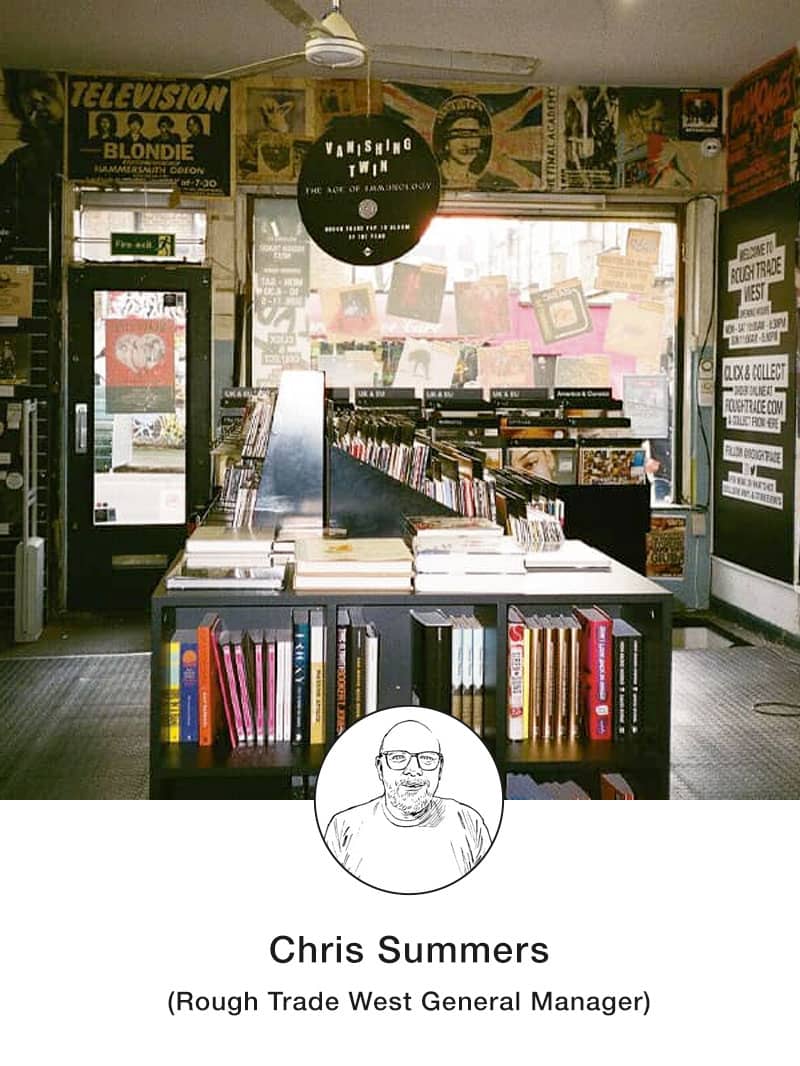
Rough Trade was founded in 1976 in Ladbroke Grove in West London and has become synonymous with the DIY music scene. It was a popular hangout place for indie artists and started its own indie label in 1978. For over forty years, the store has served as a social network for the indie scene. There are now four stores in the UK, but each maintains the same independence and local presence as the original. Store staff focus on curation, always finding exciting ways to compile the latest music that comes in every week. The in-store live acts bring music lovers of all ages together. The counter service is relaxed—staff are happy to chat about music and trade information. Often, you’ll find a famous musician browsing the racks. For us, the stores are everything, which is why we made their location clear in the T-shirt. "Streaming has made it easier to access music at low cost, but one of its side effects has been making records popular again. You might say it’s a win-win situation.
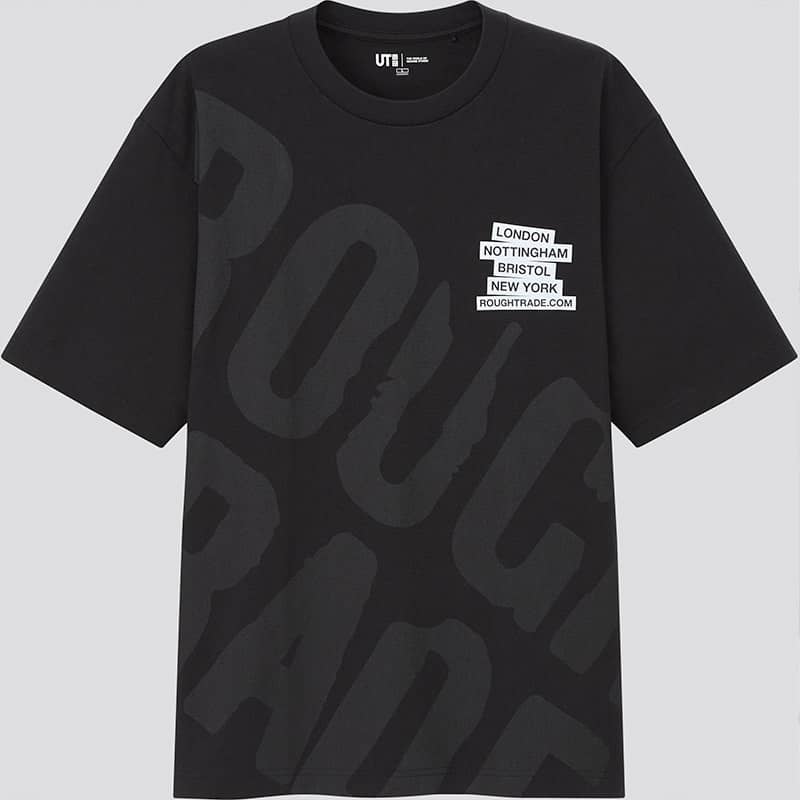
On the left chest of this black t-shirt are the city locations of Rough Trade stores, along with the global web store address.
Amoeba Music/Marc Weinstein (Co-founder)
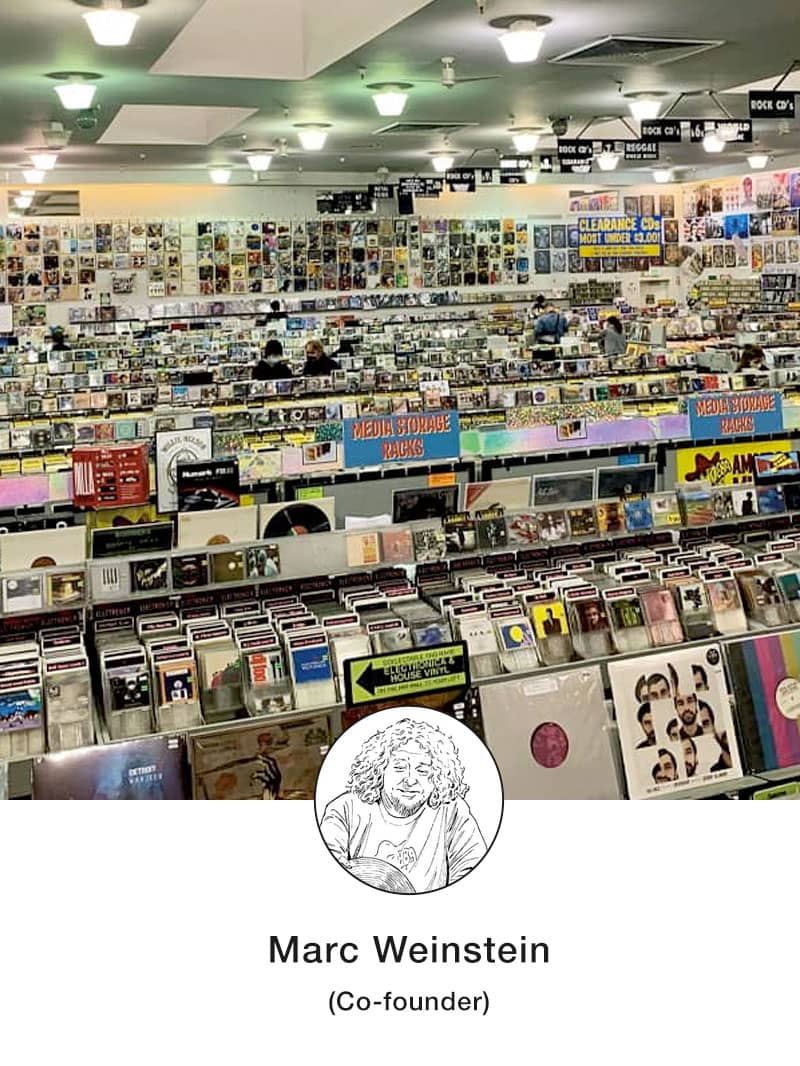
When Dave Prinz and I opened our first store in Berkeley, CA, we wanted to create the best trading spot for music collectors. We needed staff who all had an endless love and passion for music, records, and movies. Over the years, we’ve gathered some great staff from across the country and accumulated an astonishing level of music knowledge. We stock music representing all the world’s genres. We’ve got jazz, J-pop, black metal—anything we can dig up. At a time when everything is digital, a record store that stocks out-of-print and rare titles is a mecca for music lovers and musicians. All three of our LA stores have local roots and independently curated inventories. I’m excited about the new Hollywood location, which will feature a large stage with a backdrop designed by our friend Shepard Fairey and a bookshop on one floor. A record is the ultimate hard copy—it conveys the artist’s intent and recordings in the most authentic way possible. Owning a record is the greatest sign of respect to the artist.
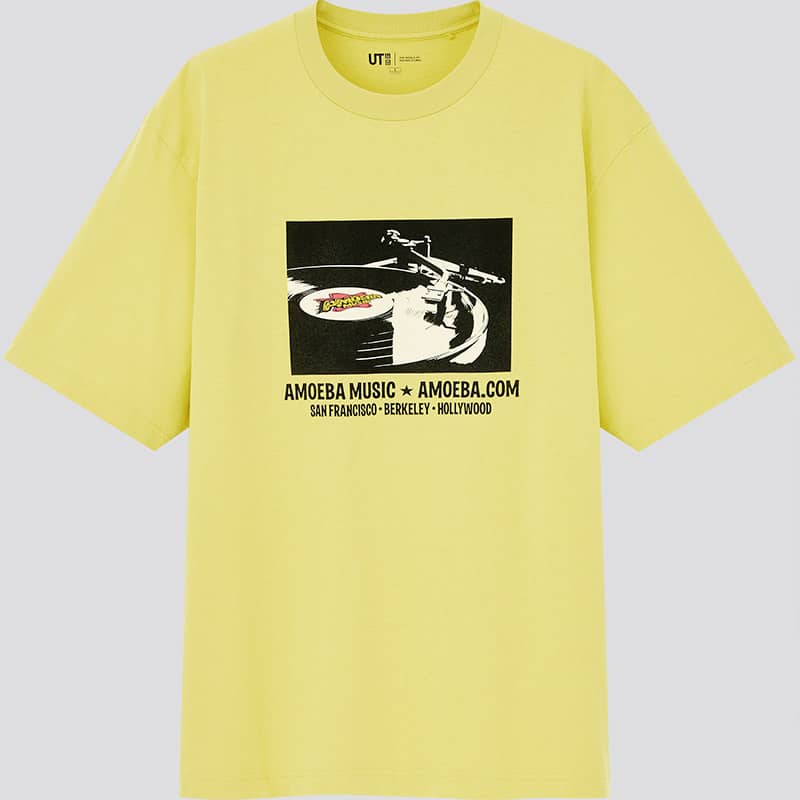
The T-shirt’s retro design features the store’s classic logo over a stylized turntable.
Rush Hour / Antal Heitlager(Co-founder)
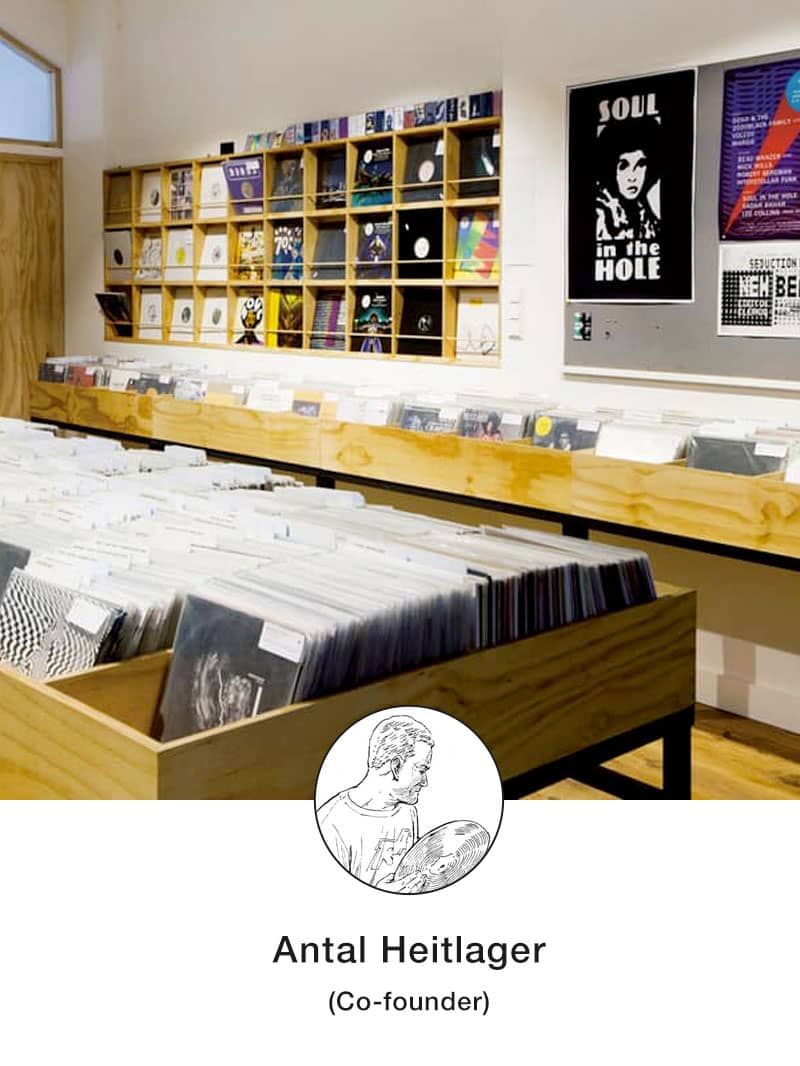
I was about twenty when I founded Rush Hour in 1997 with a friend. I loved the sense of passion in record stores, and I wanted to learn more about music. What better way to do that than by starting your own record store? I was first into house and techno music being produced by Black artists in urban areas such as Chicago, Detroit, and New York. Then I started getting into European sounds, old and new alike. We mostly sell disco, jazz, funk, African music, Brazilian music, and other music made for the dancefloor, but even if you can’t dance to it, we’ll sell it if it touches the soul. Honestly, I don’t believe in genres. They’re just words you use to describe the music. At the purest level, all great music is connected by the place and time in which they were made, no matter how they were recorded. That is what interests me. Spending ten hours to find a single record is about going on a journey into the unknown. I watch YouTube too, but what’s important isn’t convenience. It’s feeling something. The journey to find new music never ends.
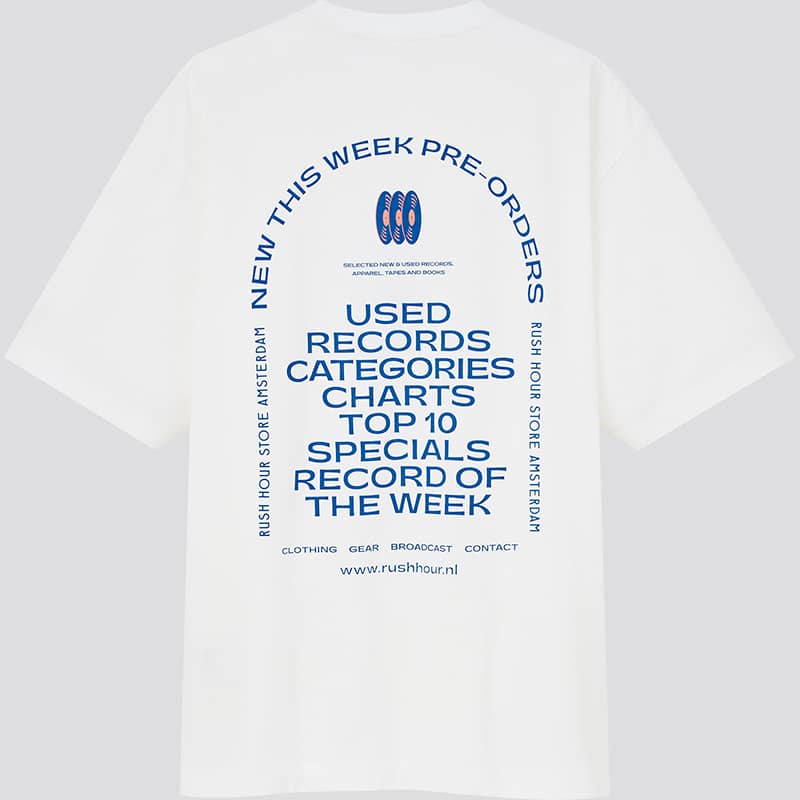
The artwork is by Kikiorix, designer for dance music festival Rainbow Disco Club in Japan.
TECHNIQUE / Yoshiharu Sato(CEO)
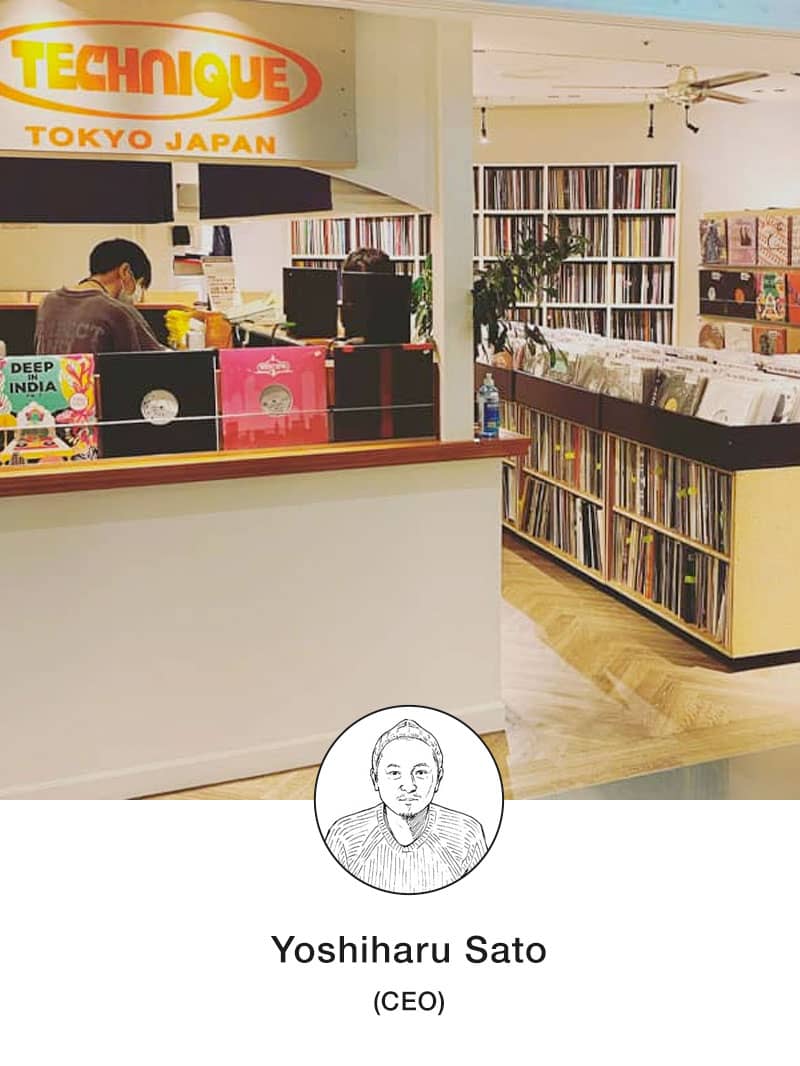
In the mid-90s, Tokyo’s club scene experienced a sudden evolution, and DJs needed more material. So, we opened a store that specialized in underground music in Tokyo’s Shibuya district, in an area that was full of record shops at the time. TECHNIQUE offered and still offers primarily techno, house, disco, breakbeat, and other dance music. With electronic music, a track can sound completely different when you listen to it as part of a mix. A good DJ can enhance the qualities of a track and change the mood on the dancefloor. We also serve as a distributor for about thirty indie labels—including Cabaret Recordings, which scored a worldwide hit with So Inagawa’s “Logo Queen” in 2013. Vinyl has a sound quality you can only find in analog recordings, one that lets you not only listen to it, but also “feel” it with your entire body. It’s also fun to look at, with so much interesting artwork on the jacket, label, and record itself. Letting the world know the joys of vinyl is my way of supporting the electronic music scene.
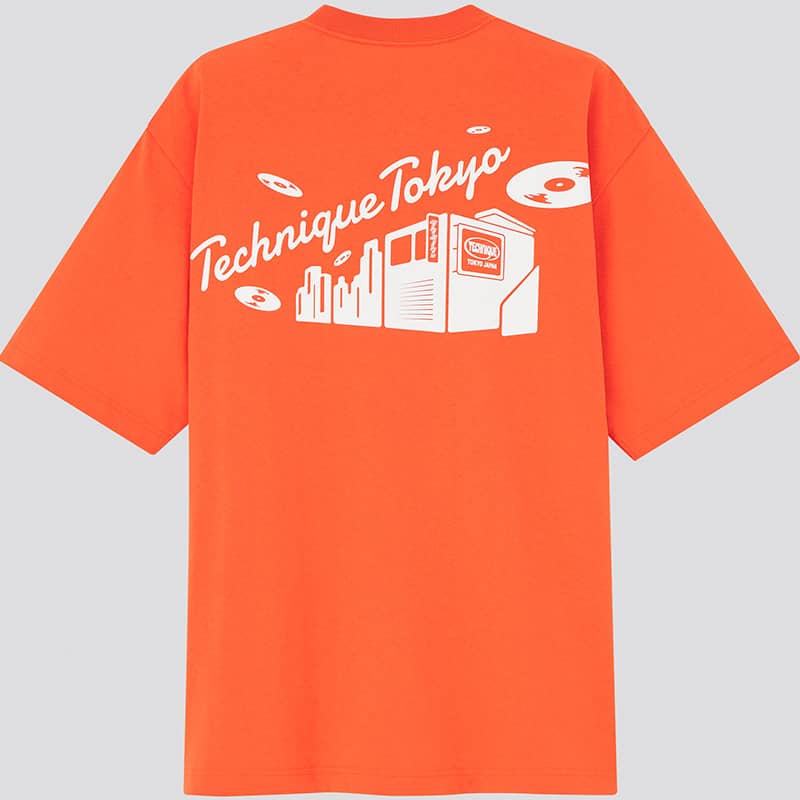
The T-shirt design shows records from around the world arriving at the store’s previous location.
Face Records/Shinichi Takei(CEO)
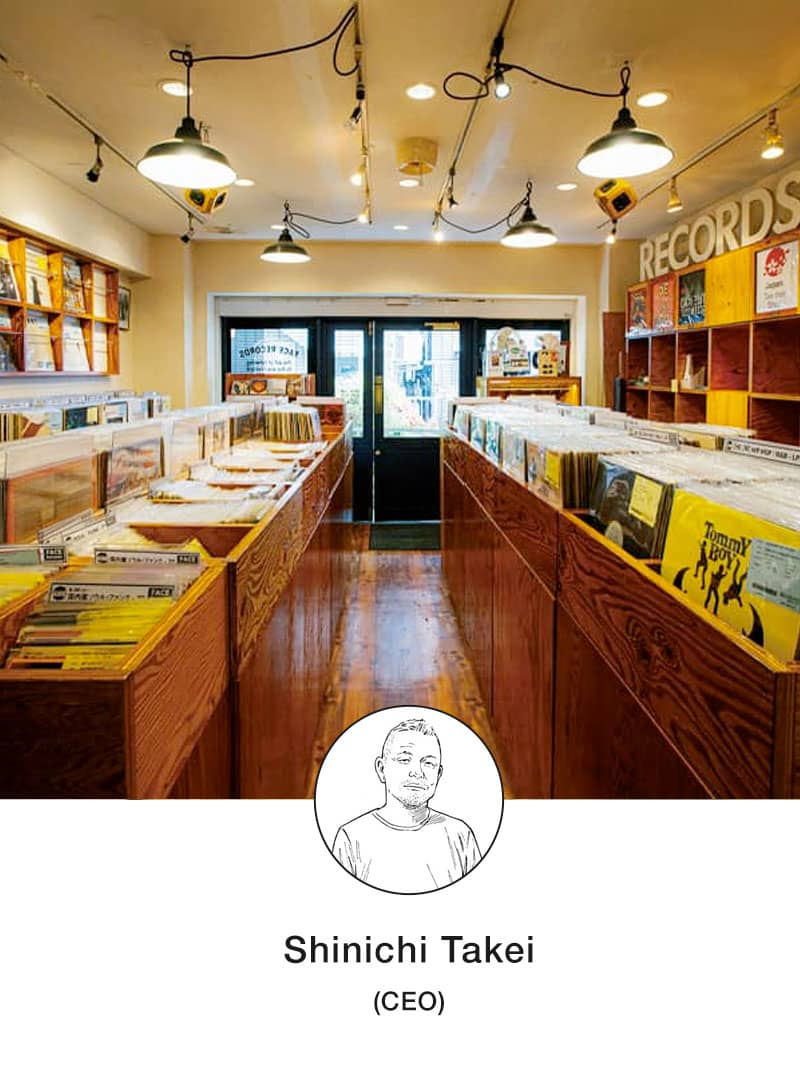
I started selling records out of my Yokohama home in 1994 and opened the store in Shibuya in 1996. Shibuya-kei [a J-pop genre] was all the rage, so I focused on Black music, which was a minor genre in Japan at the time. We sell danceable jazz, soul, and funk from the US and Europe, particularly from the 1950s to 70s. This was a period when recording equipment and instruments were evolving so rapidly that the sound changed every year. It was also when music had a strong social voice; songs recorded during the 60s civil rights and Black is Beautiful movements are very powerful. I love that the sounds I like can come from so many different eras and places. We opened our Brooklyn store in 2018—Japanese records are becoming popular overseas. Local artists, DJs, and anime fans frequent it. The text on the T-shirt is a quote from my friend. Record player needle tips are made of diamonds, and they trace the grooves on the record to play the music. That physicality is why people like me still buy records.
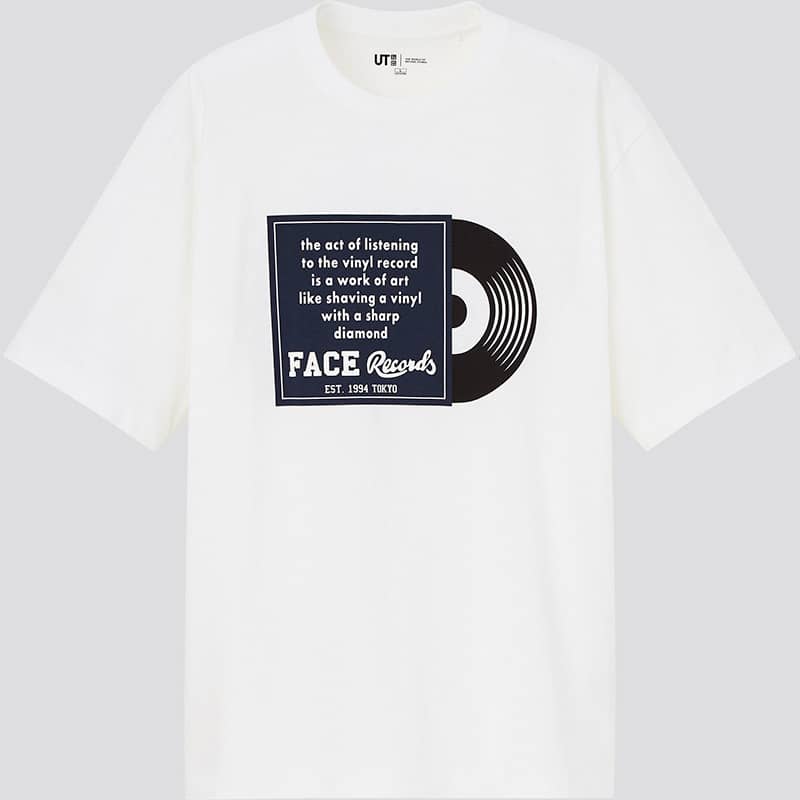
The words on the T-shirt inspired Takei ten years ago when the record industry was in a slump.
©️ Rough Trade Retail (UK) Ltd © Amoeba © 2020 Rush Hour © Technique / Energy Flash Co., ltd. ©️FTF INC.













